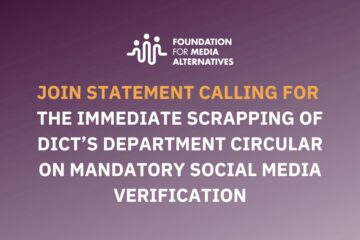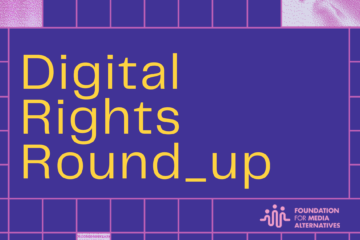[PRESS RELEASE] CODE-NGO holds up PH civil society organizations through the COVID-19 pandemic and stands firm on safeguarding fundamental rights
The Caucus of Development NGO Networks (CODE-NGO) remains steadfast in its commitment to support its 12 national and regional member networks during the pandemic and to safeguard fundamental rights that are challenged at the present time.
In its 29th General Assembly, the coalition passed three resolutions: to monitor and address the effect of the COVID-19 pandemic on civil society organizations (CSOs) and their operations, programs, and sustainability; to recalibrate CSOs internal governance policies and strategies for appropriate and agile response to any human-induced or natural catastrophe such as the COVID-19 pandemic and to monitor and document ongoing and possible human rights abuses related to the Anti-Terrorism Act of 2020.
Monitor and address Covid-19 pandemic effects on CSOs
GA Resolution No. 29-03-FY2018-CY2019
The COVID-19 global pandemic has impacted health and economic situations since December 2019. The number of cases in the country continues to rise despite efforts of both the government and the public to control it through community quarantine and public health measures. CSOs are also affected by the pandemic in terms of health, well-being and mobility of staff members, implementation of programs, projects and services, as well as availability and sustainability of funding sources. In the face of these effects, many CSOs have already downsized, shifted, paused and/or stopped their operations.
CODE-NGO and its member networks prioritize strengthening the capacity and sustainability of its members at the local levels. Therefore, the General Assembly urges CODE-NGO to monitor, study, and address the effect of COVID-19 pandemic on CSOs in the Philippines and to facilitate and innovate ways for its members to synergize strategies during these trying times. CODE-NGO will further network and engage with the government, private sector, donor institutions, and other stakeholders that can aid CSOs get needed support and partnerships for local social and economic development.
Enhance CSO operations for agile response to pandemic and the new normal
GA Resolution No. 29-04-FY2018-CY2019
The COVID-19 pandemic gave an opportunity to all CSOs to gauge its level of preparedness for humanitarian intervention in the communities and in its organization.
The present situation calls for deep reflection and recalibration of policies, programs and projects that CODE-NGO and its members shall relevantly pursue in the next, immediate years as development organizations and in accordance with the coalition’s mission-vision-goals and values. CODE-NGO will provide additional technical support to its members in reviewing and enhancing systems of internal governance so that the systems are appropriate and agile for the “new normal”. This is in line with CODE-NGO’s advocacy on CSO good governance to its members and the civil society sector at large.
Monitor human rights abuses in 80 LGUs
GA Resolution No. 29-05-FY2018-CY2019
Last July 3, 2020, Pres. Duterte signed into law the Anti-Terrorism Act of 2020 (ATA). The ATA’s key provisions impinge on the rights of Filipinos and in particular CSOs and communities they serve against the deprivation of life, liberty, and security without due process.
Before signing of the ATA, CODE-NGO had manifested, through statements and protest actions, its opposition to the passage of the bill and had called for the veto. CODE-NGO strongly opposes the law for it’s over broad definition of “terrorist” and its effect to CSOs.
The General Assembly commended the leadership of CODE-NGO for filing a petition to the Supreme Court last September 21, 2020 that questions the ATA’s constitutionality. The General Assembly urges the Supreme Court to act on it in a timely and efficient manner. It urges state authorities to ensure that humanitarian laws and the rule of law are upheld. CODE-NGO will document human rights abuses related to and beyond the law, and will develop strategies for monitoring and action against such abuses in at least 80 primary-level LGUs where its members are based.#


0 Comments